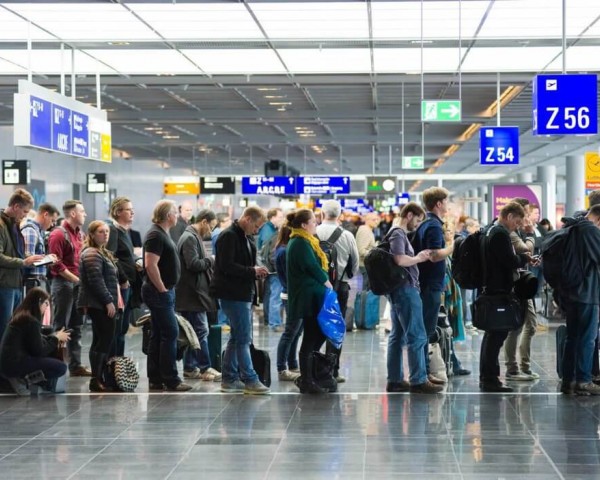Traffic jams on the highways and overcrowded airports. In the next few weeks, millions of Germans will start their summer vacations, producing CO2 and harming the climate.
According to the World Wildlife Fund (WWF), 80% of Germans acknowledge human responsibility for climate change. However, despite this awareness, most individuals are reluctant to relinquish their travel habits. In 2022, the German Tourism Association recorded over 67 million trips, surpassing pre-COVID-19 levels and potentially leading to a new record year in 2023.
According to the World Tourism Organization (UNWTO), an average international trip generates around 0.25 tons of CO2. It’s worrying that tourism also contributes approximately 5% of all greenhouse gas emissions, as reported by WWF. Furthermore, a significant three-quarters of these emissions are caused by transportation.
Two Sides of Travel
Experts, however, point out that “no mobility” is undoubtedly the worst solution. Tourism is an important economic factor and employer in many countries. Germany alone has three million direct employees. Tourism also stands for freedom.
30 Percent Less Kerosene
The industry is shifting towards technology-based solutions that prioritize train travel over car travel and electric vehicles if driving is necessary. The latest aircraft models consume up to 30 percent less kerosene, and Lufthansa plans to have 195 of these planes in operation by 2030. Sustainable aviation fuels, which can be produced without fossil fuels, are also promising.
Using Fewer Resources Saves Money
CO2 compensation can be a bridge, say tourism experts, referring to payments for climate protection projects.
Travel sustainability is a top priority for the entire industry, and it’s not just about transportation. As a hotelier, reducing bed linen, towels, water, and electricity can significantly reduce operating costs. Sustainability is not only environmentally responsible, but also economically beneficial.
In the Jungle of Certificates
What does sustainability mean in practice? In Germany, many changes are needed, such as avoiding turning the Alps into a theme park and refraining from expanding luxury resorts. Respecting the right to water by not building golf courses or swimming pools in water-scarce regions is essential.
Many businesses prioritize sustainability and wish to convey this message to their customers. As a result, a certification industry has emerged with approximately 800 different certificates and labels worldwide and 180 in Germany alone. To simplify the process, experts recommend creating umbrella brands that categorize and bundle individual labels based on specific criteria.




